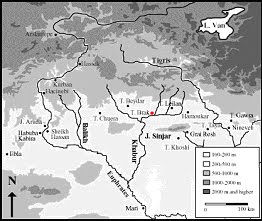I've finished reading Murder in Mesopotamia (1936)and have to say I found it really rather good (to use the vernacular). My goodness, the writing takes me back in time. The vocabulary is, naturally, 1930s middle class English. The use of the words 'queer' and 'rather' is liberal. "Do you know how queer she's been?" Strange to read the word 'queer' used so normally, when now it has connotations and it's not regarded as polite to use it. I suppose that's what happens with the English language; there is a constant evolution which is why it has become the international language.
By the way, the title of this blog is the Arabic phrase used at the beginning of a journey. Translated, it is "In the name of Allah, the Merciful, the Compassionate". It was used by M. Poirot at the beginning of his customary denouement at the end of the book.
The story is set at Tell Yarimjah in Iraq and is narrated by a nurse brought in to steady the nerves of the first victim. I'd like to find out why Ms Christie chose to speak through the nurse and write in such a conversational way. The book does not give much insight into Iraq and it's people, who are nothing more than occasional extras in the form of boys who guard the compound, diggers etc. The richest description given to them is as follows:
"It was the workmen that made me laugh.You never saw such a lot of scarecrows - all in long petticoats and rags, and their heads tied up as though they had toothache."
I wonder why she didn't include characters from the Arab people that she loved. In the last chapter (L'envoi) she writes:
"I've never been out East again. It's funny - sometimes I wish I could. I think of the noise the water-wheel made and the women washing, and that queer haughty look that camels give you - and I get quite a homesick feeling. After all, perhaps dirt isn't really so unhealthy as one is brought up to believe!"
Was she writing from the heart at that point? And it's true. It can be difficult to adjust to living in the Middle East when one is British. The norms of everyday life are different. The priorities of the people are very different. Yet, Arabness gets under the skin and eventually an affection for another way of thinking and living develops. It's still frustrating and sometimes bloody annoying.
Now, it's Fidos. Knocking off time at the Dig.
